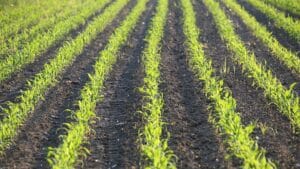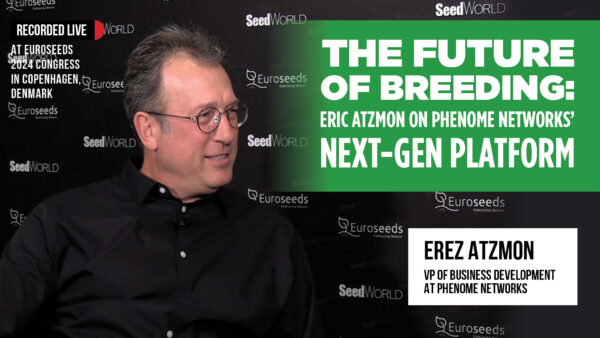Members of the seed industry unite to educate, develop best management practices and help increase awareness about the importance of intellectual property.
For the past year and half, James Weatherly, a patent attorney in Denver, Colo., has been working to give legs to the seed industry’s new education and outreach arm — the Seed Innovation and Protection Alliance (SIPA).
The group formally got its start in July 2014 with the first board meeting, representing 11 founding members.
Weatherly, now SIPA’s executive director, explains that the first several months really laid the ground work for the alliance as he worked with the board to develop the membership structure, code of conduct, mission statement and website.
“With such a diverse membership, we wanted to make sure everyone’s views were incorporated into the mission statement,” Weatherly says.
The mission of SIPA is to “promote the understanding and value of seed innovation as well as facilitate and promote the respect of intellectual property rights for the benefit of members, growers, industry associates, consumers and the agricultural community.”
All that legwork is starting to pay off. The alliance now has 33 members representing all facets of the seed industry and is preparing to host its second education unit with five more planned for 2016. Members include seed companies, service providers, dealers and brokers, seed associations and educational institutions.
The first workshop was held in Tampa, Fla., in conjunction with the American Seed Trade Association’s annual vegetable and flower seed conference. Participants learned about economic espionage, the intellectual property (IP) environment in Mexico and IP as it relates to seed.
The workshops are not just for plant breeders. They are for company leaders and those in sales and marketing as well as research and development.
“As we look to increase awareness and educate growers, it’s important that we are internally aligned, as everyone has a different way of managing their innovation pipeline,” says Eloy Corona, a founding SIPA board member representing Bayer CropScience. “We want to make sure members are educated about the various forms of IP and able to articulate that to farmers in a consistent manner.”
A Better Understanding
While many are most familiar with farmer “saved seed” investigations, IP violations can occur within seed companies, academic research institutions and others. Having worked with agricultural companies for more than nine years, Weatherly says he’s noticed a distinct difference in the understanding of IP among them. Some are well-versed experts, while others have a very basic knowledge, he says.
Weatherly explains it’s important to note that SIPA is focused on creating a better understanding of the value of innovation to all those who benefit, from seed companies, to growers, to the various distribution networks and ultimately the growing population of consumers.
“The world’s population will be 9 billion by 2050, and the technologies we have today are not sufficient to feed the world,” Weatherly says. “We need to develop new technologies to help farmers provide the food, feed, fuel and fiber demanded by the world, and innovation in the seed industry helps to increase genetic gain.
“Let’s look at lettuce. Innovations in the past 20 years have allowed for a yield increase of 209 percent from 1992 to 2007, according to the U.S. Department of Agriculture, while addressing labor and disease and insect pressure.
“The annual value of lettuce seed in 1995 was estimated to be $31 million; today it’s about $105 million. That’s a huge increase, but there’s also been an increase in annual research and development, estimated to be from 16 percent to 23 percent, which has increased the value of what growers are producing.”
Ton van der Velden, SIPA chair and Enza Zaden North America president and CEO, says he has worked his whole life in the seed industry and has always been concerned about being able to invest research and development dollars into open-pollinated crops such as peas, beans, lettuce, wheat and grass seed.
“To enable innovation and research and development, there must be reasonable compensation so we can continue to invest,” van der Velden says.
Innovation Provides Value
Weatherly notes the message is the same across the board, no matter what sector of the industry one might examine. “Innovation provides value back to the industry and growers,” he says.
In addition to providing education, SIPA has set up an anonymous tip line that allows companies or growers to call and report the suspicious use of seed. Weatherly explains that the tip comes into SIPA and then is forwarded to the appropriate stakeholders who might be interested in the information provided.
SIPA has two divisions, a Flower and Vegetable division and a Field Crop Division. The alliance is also looking to add a grass division.
The first set of educational materials will focus on IP around leafy greens, soybeans and wheat. Materials will include brochures, electronic PDFs, and presentations that can be used by members or passed down the value chain to growers.
“How lettuce is developed and grown is totally different than soybeans, and the value of innovation associated with lettuce is different than that of field crops,” Weatherly says.
SIPA’s focus on education is not only designed to reduce infringement incidents but also to help companies improve their individual business practices and resolve matters around compliance. SIPA will work with member companies to help them identify resources that can help resolve compliance allegations.
In additional to van der Velden and Corona, SIPA board members include: Andy LaVigne, ASTA; Mark Overduin, Bejo Seeds; Susan Jayne, Dow AgroSciences; Brad Kurtz, DuPont Pioneer; John Schoenecker, HM.CLAUSE; Mimi Ricketts, Monsanto; Rick Falconer, Rijk Zwaan Nederland B.V.; Corinne Marshall, Sakata Seed America; and Tom Hamilton, Syngenta.
SIPA Focuses on Education
The Seed Innovation and Protection Alliance (SIPA)seeks to provide education about intellectual property (IP) for company leaders and those in sales and marketing as well as research and development. In meeting its mission, the alliance will host technical education units Dec. 8 in Chicago, Ill., and Feb. 2 in Anaheim, Calif.
For the Dec. 8 educational unit, participants will learn about the identification of innovation, procuring protection for an innovation and how to maintain IP. Speakers include Cecilia Chi-Ham of HM.CLAUSE, John Schillinger of Schillinger Genetics and Dana Rewoldt of Iowa State University and several others. Registration is due Dec. 1.
The Feb. 2 educational unit will hone in on the America Invents Act, patents and plant variety protection labeling; trademarks and plant varieties; and licensing. Registration is due Jan. 15, 2016.
To register, contact James Weatherly, SIPA executive director, at jamesw@seedipalliance.com or 303-861-2900.













